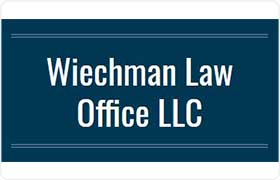Denison Reorganization Lawyer, Kansas
Sponsored Law Firm
-
 x
x

Click For More Info:
-
Wiechman Law Office LLC
1101 Sw 10th Ave. Topeka, KS 66604» view mapBankruptcy & Debt Law A Better Way Forward
Our mission is to guide our clients to a better way of life. We are here to listen. We are here to help. We’ll find a solution that fits you and your situation.
800-969-4051
Not enough matches for Denison Reorganization lawyer.
Below are all Denison Bankruptcy & Debt lawyers.
Gary E. Hinck
✓ VERIFIEDBankruptcy, Reorganization, Workout, Credit & Debt, Consumer Bankruptcy
We are a debt relief agency, we help people file for Bankruptcy under the Bankruptcy code.
Gary E. Hinck is an experienced Bankruptcy Attorney who has helped thousands of clients through the Bankruptcy process. Gary and his staff understand ... (more)
Michael Grear
Consumer Protection, Corporate, Consumer Bankruptcy, Bankruptcy
Status: In Good Standing
FREE CONSULTATION
CONTACTFREE CONSULTATION
CONTACTJill A. Michaux
Litigation, Workout, Credit & Debt, Consumer Bankruptcy, Bankruptcy
Status: In Good Standing
Charles Richard Hay
Litigation, Health Care, Business, Bankruptcy & Debt
Status: In Good Standing Licensed: 50 Years
 Kerry Gasper Topeka, KS
Kerry Gasper Topeka, KS

